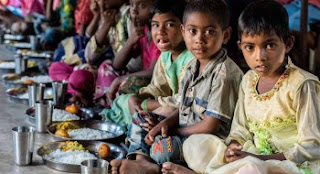The Evolving Role of NGOs in India’s Development Story
Introduction
India has come a long way since its independence in 1947. Over the years, the country has made significant progress in various areas, such as education, healthcare, infrastructure, and economy. However, despite these achievements, India still faces several challenges, including poverty, inequality, and underdevelopment. In this context, non-governmental organizations (NGOs) have emerged as important players in India's development story. NGOs have been working towards socio-economic development, environmental conservation, human rights, and other causes that contribute to the overall progress of the country. In this article, we will explore the history and role of NGOs in India's development and examine their impact on society.
The History of NGOs in India
NGOs have been active in India for many decades, and their roots can be traced back to the colonial era. During British rule, social and political organizations emerged to fight for India's independence and to advocate for human rights and social justice. After independence, NGOs continued to play a crucial role in nation-building by promoting education, health, and other essential services in rural and urban areas. Over the years, NGOs in India have diversified their focus areas and expanded their outreach to reach the marginalized sections of society.
The Role of NGOs in India's Development
NGOs in India play a multi-faceted role in promoting development and social welfare. Some of their key functions are:
- Providing basic services: NGOs work in various areas such as health, education, sanitation, and water supply to provide basic services to the underprivileged sections of society.
- Advocacy and policy formulation: NGOs work towards policy change and advocacy on issues such as human rights, gender equality, environmental conservation, and social justice.
- Capacity building: NGOs engage in capacity building activities to enhance the skills and knowledge of communities and individuals to improve their socio-economic status.
- Research and analysis: NGOs conduct research and analysis on various development issues to identify gaps and challenges and provide evidence-based recommendations for policy formulation and implementation.
- Emergency relief and disaster management: NGOs are often at the forefront of providing emergency relief and disaster management services during natural calamities, conflicts, and other crises.
Challenges Faced by NGOs in India
Despite their significant contributions, NGOs in India face several challenges that hinder their effectiveness and sustainability. Some of the common challenges are:
- Regulatory environment: NGOs in India are subject to a complex regulatory environment that involves multiple laws and regulations, making it difficult for them to operate smoothly.
- Funding and resource constraints: NGOs often face funding and resource constraints, which affect their ability to implement programs and sustain their operations.
- Credibility and accountability: NGOs sometimes face credibility and accountability issues due to lack of transparency and governance mechanisms, which affect their ability to gain public trust and support.
- Competition and coordination: The proliferation of NGOs in India has led to competition for funding and resources, and sometimes lack of coordination and cooperation among NGOs working in the same area.
FAQs
Q: How many NGOs are there in India?
A: As of 2021, there are over 3.3 million NGOs registered in India.
Q: What is the impact of NGOs on India's development?
A: NGOs have played a significant role in promoting socio-economic development, environmental conservation, human rights, and other causes that contribute to India's overall progress.
Q: How can individuals contribute to NGOs in India?
A: Individuals can contribute to NGOs in India by volunteering, donating, or supporting their programs and initiatives.
Conclusion
NGOs in India have come a long way since their inception and have made significant contributions to the country's development journey. They have played a crucial role in providing basic services, advocating for policy change, conducting research, and providing emergency relief and disaster management services. However, they also face several challenges that affect their effectiveness and sustainability. These challenges need to be addressed to enable NGOs to play a more significant role in India's development.
In conclusion,NGOs like Samarth Foundation have a crucial role to play in promoting socio-economic development, environmental conservation, and human rights in India. They bring a unique perspective and approach to development work and often work in areas that are neglected or under-served by the government. NGOs have demonstrated their ability to make a significant impact on society, and their contributions are much needed in a country like India, which still faces several challenges. Therefore, it is essential to support and strengthen the NGO sector in India to enable them to continue their valuable work towards the betterment of society. The NGOs and Development: History and Role in India is a testament to the significant role NGOs play in the country's development story, and organizations like Samarth Foundation are at the forefront of this important work.




Women Empowerment NGO in India
ReplyDelete